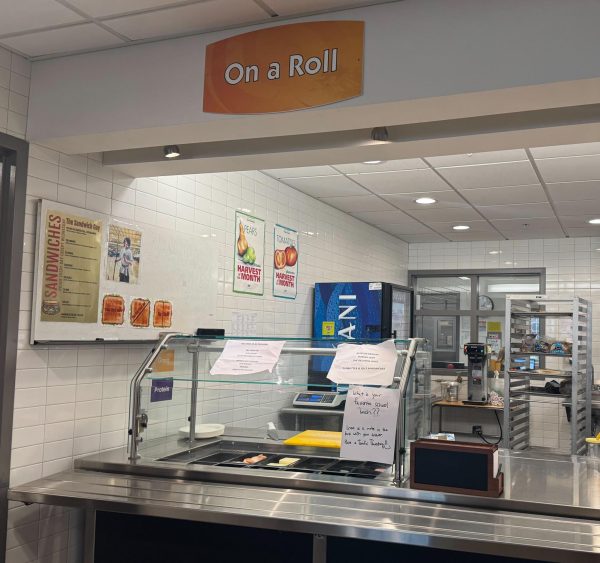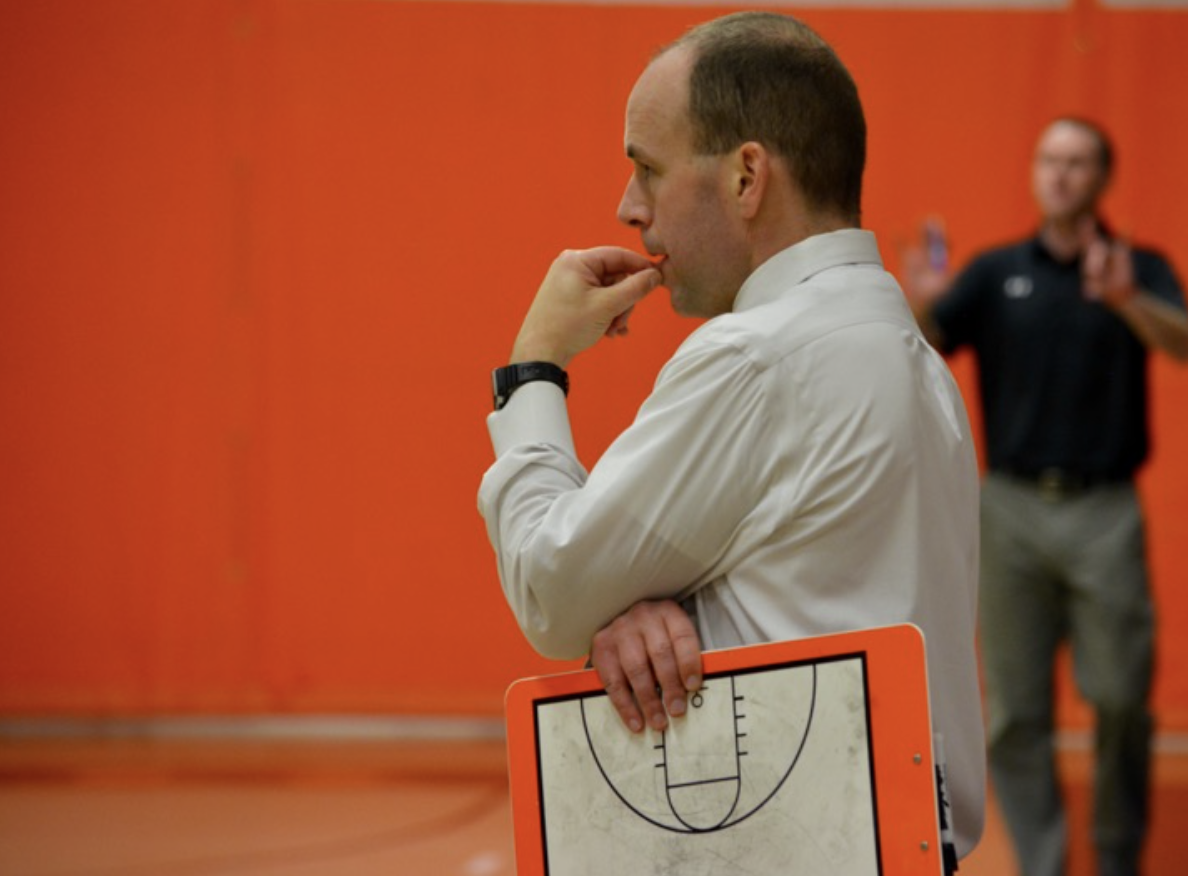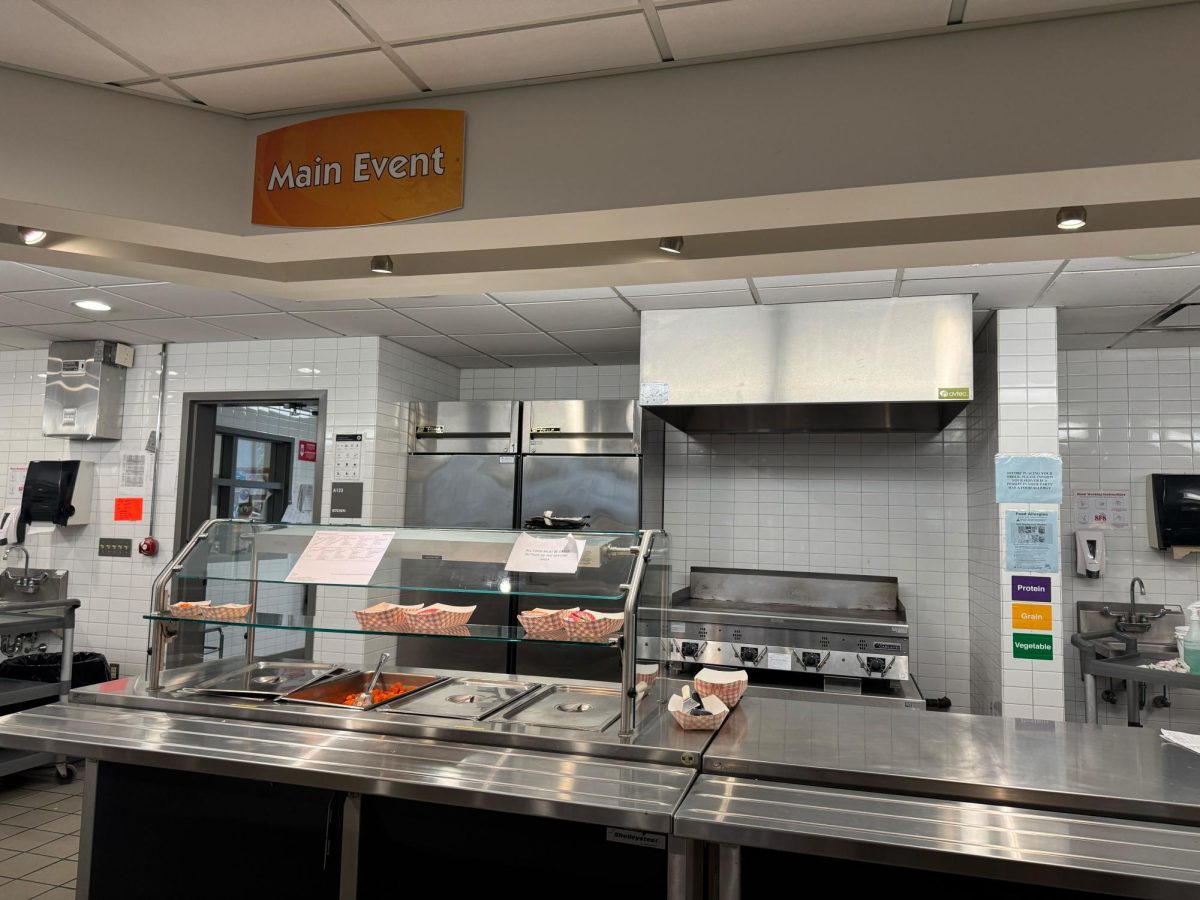Some people bring lunch from home while others buy lunch, but whichever you do, if you’ve ever spent time in the WHS commons, you’ve most likely seen the cafeteria workers.
Countless hours are spent each day planning, preparing, exporting and serving meals. Although a lot of the work happens away from students, cafeteria workers start their days as early as 7 A.M.. From the Children’s Way, to all three elementary schools, the middle school and high school, the cafeteria workers’ schedule is not an easy task.
Each lunch has five requirements: fruit, vegetables, starchy vegetables, grains and meat or meat alternatives.
“We have requirements under the national school lunch program,” Kitchen Manager Cheryl Judd said. “We have to look at calories, food components [and] take into consideration what the students would like to eat.”
When covid began, lunches became free for all students, no matter their family’s income. Each lunch distributed has to be counted for, since at the end of the month the federal government reimburses schools for the produce used. Massachusetts was the eighth state to require free lunches, but many states in the U.S. still charge students.
“There’s a group called Project Bread,” Judd said. “They’re trying to get universal free meals for everybody throughout the United States, but I’m not sure if that’s going to happen.”
Although a lot of time is spent planning and making lunches, it also takes a lot of time to distribute them. The every-day interactions with students have a large impact on the school’s culinary staff according to cafeteria worker Nancy Cunningham.
“[I] get to see them mature and grow and make friends and it’s fun,” Cunningham said. “I enjoy the kids, and I don’t mind preparing beforehand.”

Lunch is not the only meal served at WHS, they also have a variety of options served at the “snack shack.” Cafeteria worker Mercedes Fragale tends to run the snack shack and comes to work each morning at 7 A.M.. She is tasked with preparing lunch bags for the Children’s Way, making up to 150 bagels, yogurt parfaits, snacks and drinks.
“I’m always refilling all the snacks over and over and I’m always filling the drinks up,” Fragale said. “I have to keep up with that.”
Creating and transporting meals throughout the Wayland Public Schools takes a lot of time. Most cafeteria workers have been working at WHS for a long time. Cunningham has eight years of experience, Fragle has 18 and Judd has 28. They mentioned that each year spent working is another that they get to witness students grow.
“I see the kids get better and more polite, and then that makes me happy,” Fragale said.

![During the WHS club fair, senior Molly Bergeron is watching a student sign up for her club, Eliza J. Norton Foundation. In this club, students meet every week and come up with ideas to spread the message. "[This club] really touches a lot of people in the town," Bergeron said.](https://waylandstudentpress.com/wp-content/uploads/2025/10/IMG_1335-1200x800.jpg)
































